The Top 7 Myths About Capstones
Debunking What Parents and Educators Get Wrong About Capstone Projects
A student at Siembra Leadership High School presents her learning in a formal presentation in front of her teachers, mentors, and community members.
In New Mexico, a major policy shift is taking place: senior capstone projects will be a new pathway to graduation. This new project-based graduation pathway culminates with senior exhibitions—known as “capstones”—to demonstrate learning, as an alternative to standardized tests.
Across the state there is confusion about what a capstone is and how it will affect our students and educators. Read on to learn why many of these misunderstandings are myths that are readily debunked…
1. “Capstones are only for students who flunk the test.”
Capstones have been used as an “Alternate Demonstration of Competency” for graduation in New Mexico for many years—an option for students who did not pass the myriad exit exams offered. This has led to the misperception that capstones are a “last resort” option for students who struggle with standardized tests.
It is true that capstones are a great option for learners who under-perform on bubble tests because of anxiety, ADHD, or other factors. However, they also serve the needs of students who normally perform well on tests, too. This is because capstone projects are individualized and tailored to the student’s specific learning style.
New Mexico is moving to a new model where capstone assessments are not an “alternative” but are instead of equal weight and merit to the SAT.
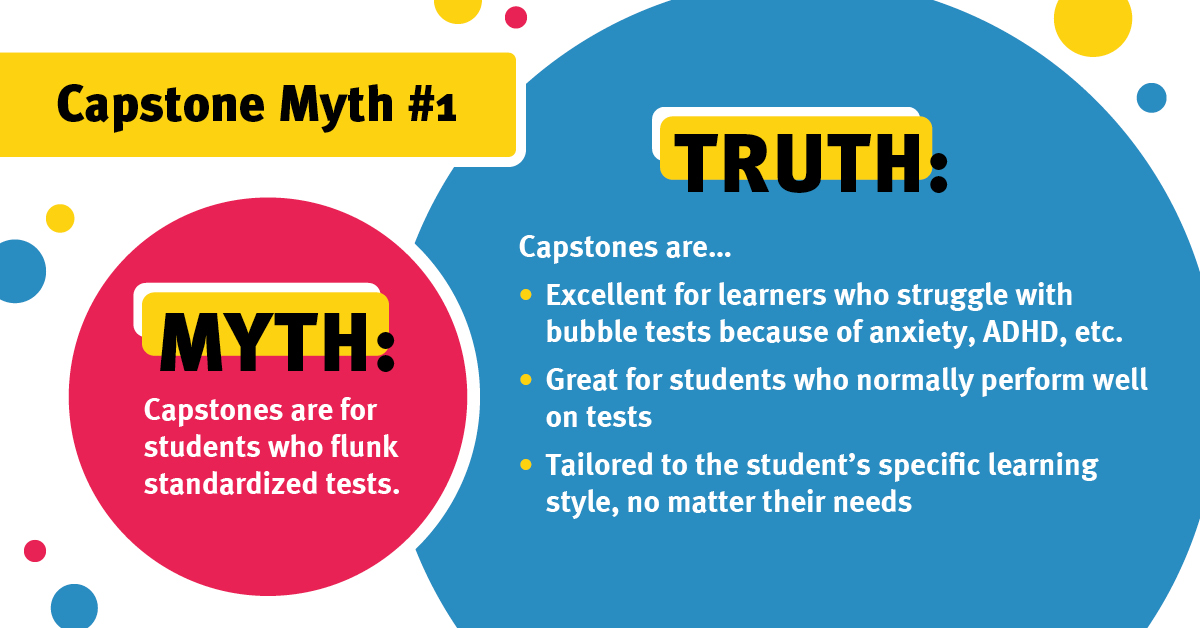
“Capstones are completely student centered, allowing them to showcase their passions, intentions, joys and strengths. You really see kids shine.”
2. “Capstones are too hard.”
Yes, capstones do require preparation, practice, and deep learning to prepare and succeed at a cumulative exam. However, instead of compartmentalizing learning into strict subject areas, capstones give students opportunities to demonstrate a variety of skills, talents, and learnings over the course of a multi-dimensional project assignment on a subject of their choosing. Doing so removes the pressure of a snapshot assessment. In this way, a capstone isn’t “harder” than a traditional test, because the student has been thoroughly prepared and embedded in the learning.
Whether a capstone is “hard” compared to a bubble-test assessment is almost an “apples and oranges” comparison. The difference is, instead of a standardized test as the final demonstration and proof of mastery of key high school competencies, the student presents their semester-long (or multi-year in some cases) research and findings in a capstone presentation in front of their peers, teachers, and parents. The work is indeed challenging, but the student is supported and mentored by their teachers and community leaders throughout the entire learning journey.
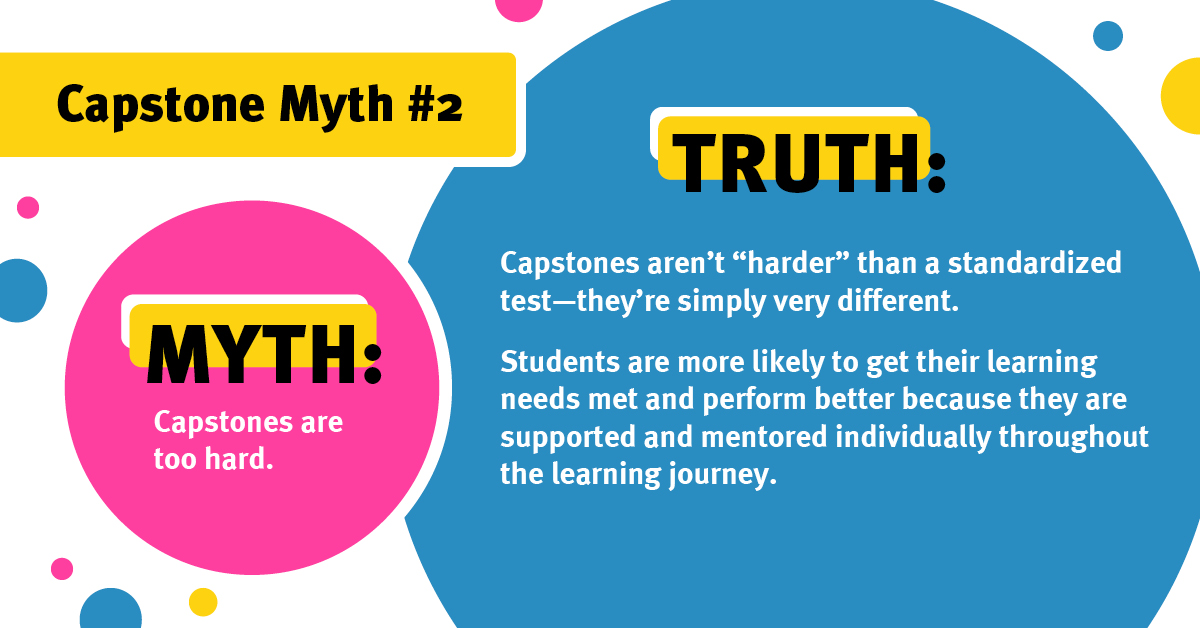
“At our school we call capstone presentations ‘celebrations of learning’. It’s a time for students to show who they are culturally, showcase their identity and passions, and feel purposeful.”
3. “Capstones are too easy.”
Capstones are sometimes misunderstood as busy work or simple community service hours. Rather, they are rigorous, well-rounded academic undertakings.
Capstones require research, community input, analysis, experimentation, public speaking and a formal presentation. Many educators compare the project to a National Science Fair presentation—or better yet, a Master’s dissertation.
The rigor of a capstone comes from its comprehensive nature: the work requires social-emotional skills for team work and community outreach, professionalism and office skills to work on-site with industry mentors, and research and analysis skills for collecting and interpreting data. Capstones are in no way “easier” than standardized testing—they are simply different, and more comprehensive.
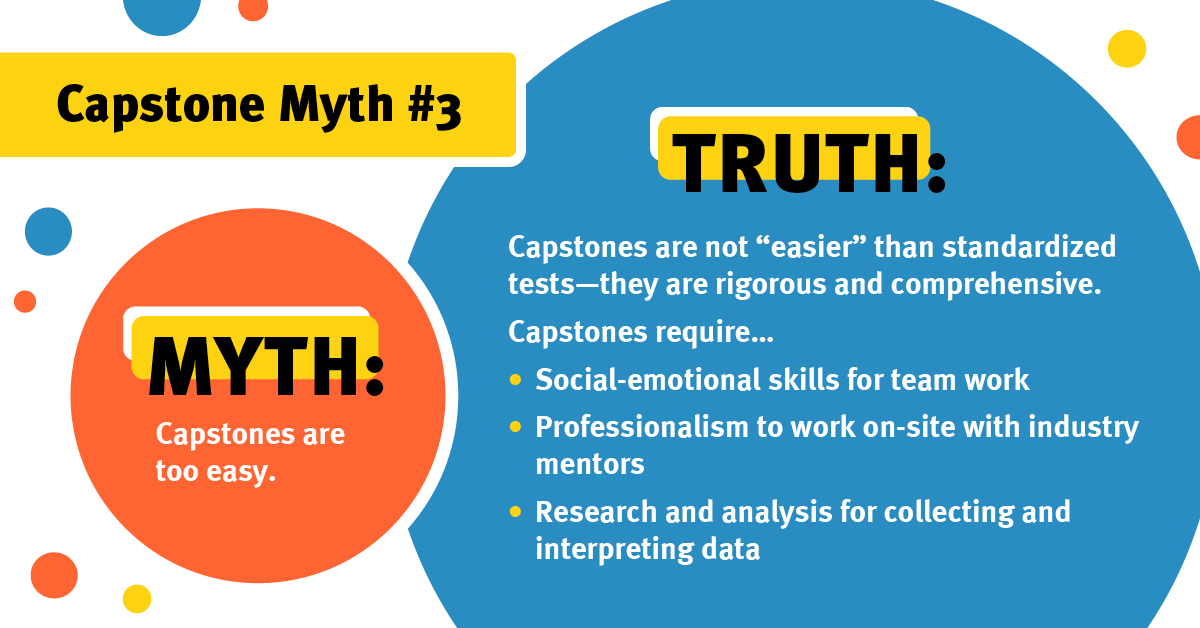

4. “Capstones make more work for the teacher.”
It’s true that capstone projects are highly individualized—meaning the teacher may manage up to 30 different student projects at once. This may seem like a larger workload for the teacher, but when capstones are implemented with adequate support and training, they do not require more effort.
In fact, students are given voice and choice in the process and guide much of the work with teacher and community support. Capstones can engage students as change agents in their communities and can be cultivated in partnership with community members, further lightening the load for educators.
Instead, many teachers report that capstone projects reawaken their personal passion for teaching. Unlike standardized tests which are disconnected from students’ lives, capstones give room for deep connection to students’ curiosities, cultures, interests, and community identity.
Capstones give teachers more autonomy and creativity to rethink assessment for themselves and their students. Instead of being judged solely on annual testing data, capstones give teachers the power and freedom to serve the academic, cultural, and linguistic needs of individual students and their specific communities.
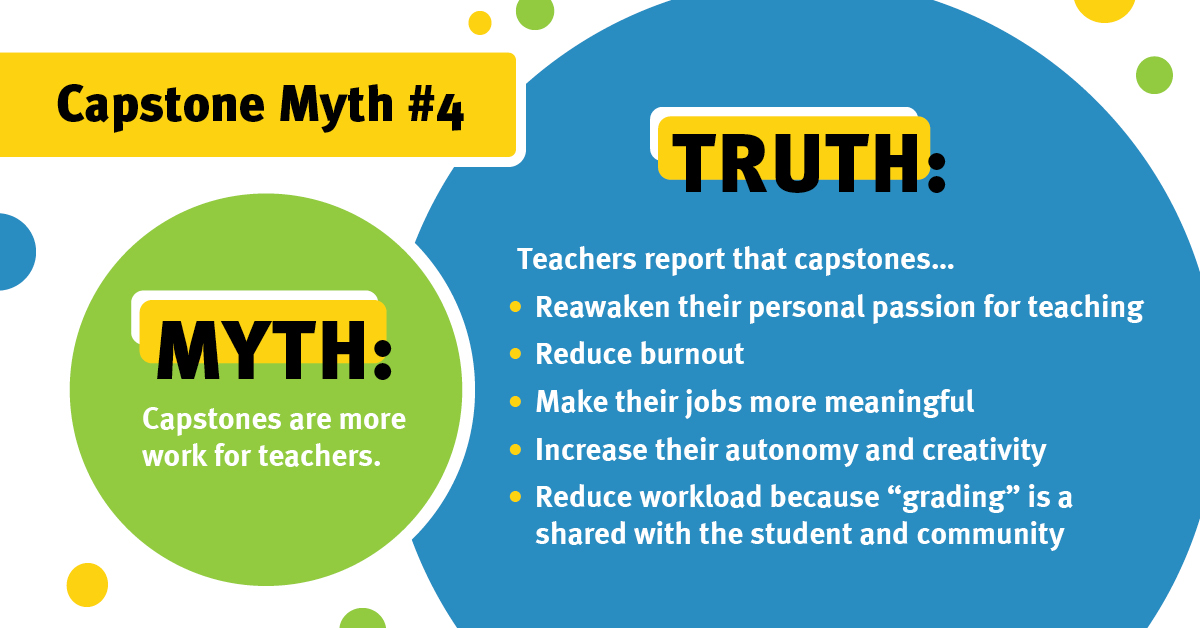
“When I do this kind of work, I’m reminded why I began teaching. School is a place to make the community a better place, where students can truly shine. Capstone curriculum actually makes teaching so much more gratifying and purposeful.”
5. “Capstones are hard to grade. Standardized testing is the only way to get quantifiable results.”
While grading capstones is different from processing scantron sheets, it still results in quantifiable data and proof of mastery metrics.
Capstones change the culture of accountability. Because the rubric for demonstrations of learning is in-depth and multi-faceted, capstone data must be processed differently. One argument in favor of standardized testing is that by processing test scores with computers, the results are cheaper and more efficient. In turn, capstone assessments are more meaningful because they are scored by educators and community members, providing students with actionable feedback.
Capstone success can not be processed by a global testing conglomerate. And that is exactly why capstone assessments are a deeper, more community-centered measure of college readiness and subject mastery. This rich, qualitative data is of equal importance and easier to understand by students and families than quantified test reports that do not reflect their full learning and growth experiences in and out of school.
Graduate profiles are an important tool to understand the knowledge, skills, and attributes that young people should graduate with, in addition to key high school competencies. This process requires student, family, educator, employers, and community member input to define the graduate profile. Doing so creates more transparency for student outcomes and learning. Capstones defined by school and community provide a clearer understanding of student learning, community impact, and college readiness than scantron data. This ultimately leads to better performing schools that are in service to the needs of their students and community.
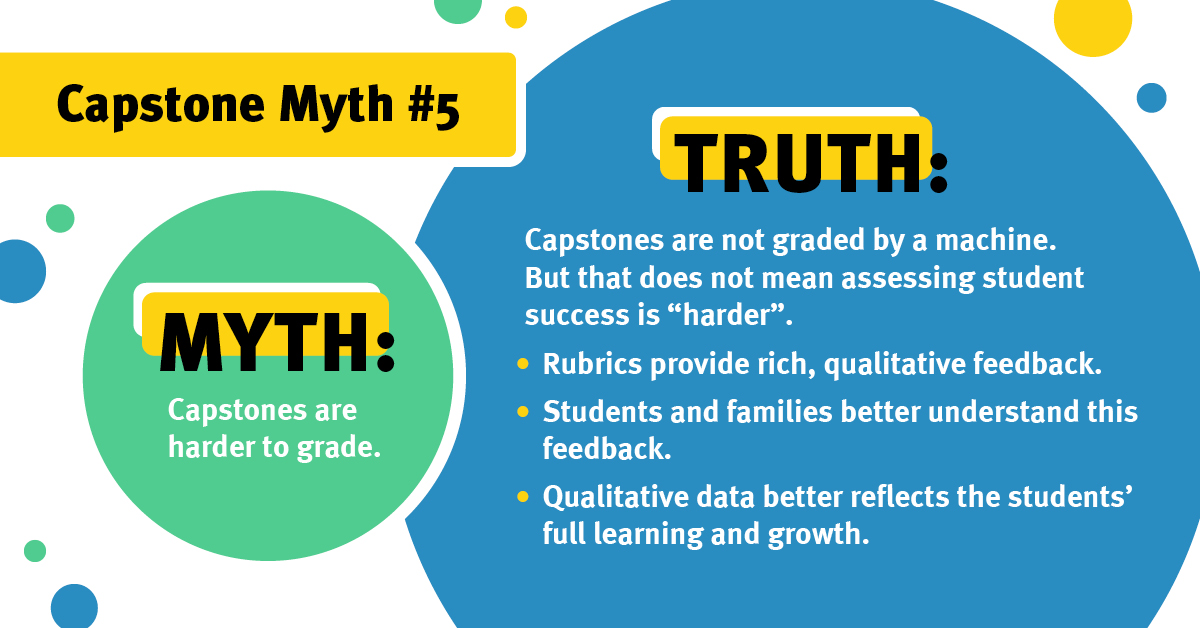
6. “Capstones don’t prepare students for college.”
Capstones are better at preparing students for college than standardized tests. Work-based and project-based learning equip students with the real-world 21st century skills needed in college and the workforce. Several capstone models already in New Mexican schools align capstone work with dual credit offerings, providing students an opportunity to earn college credit in classes that enrich their capstone learning experience.
Where standardized testing data would judge college readiness based on a math and reading score, a capstone would determine readiness based on a full range of soft and hard skills such as: empathy, critical-thinking, resilience, community-mindedness, scientific methodology, and problem-solving.
There is a growing number of colleges and universities that no longer require standardized test scores for admission, given that they are not a direct predictor of success in college. In fact, larger tech companies have also grown wary of hiring Ivy League graduates, many of whom were offered admission based on their standardized test scores. Tech companies have observed these students’ limited readiness to problem solve and work collaboratively.
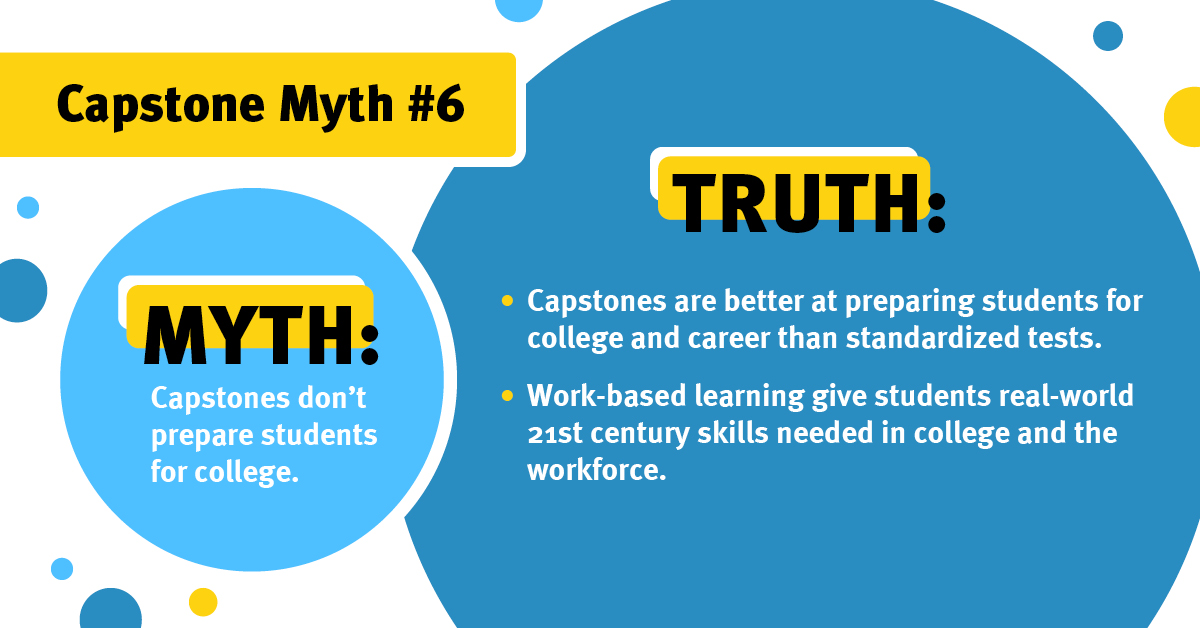
7. “Students don’t like capstones.”
In our work at Future Focused Education, the Leadership High Schools Network, and the New Mexico Graduation Equity Initiative, we see an overwhelming majority of students prefer and advocate for capstones over standardized testing.
The strongest argument is to hear from the students themselves. Here are some quotes from a recent focus group conducted by the New Mexico Graduation Equity Initiative:
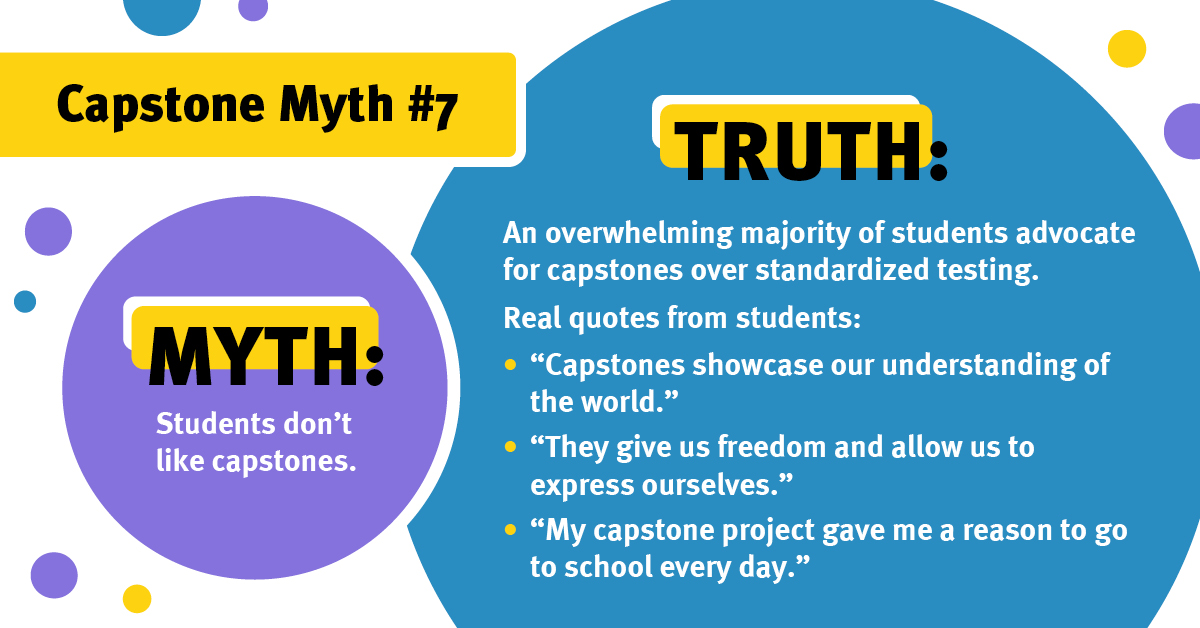
- “Capstones showcase our understanding of the world, and explore yourself as a person.”
- “They give us freedom, and allow us to express ourselves and be creative. It helped me feel independent.”
- “Standardized tests make me so nervous, and don’t accurately show what I’m capable of.”
- “My capstone project gave me a reason to go to school every day.”
- “You can pick anything! You get real work experience and it looks great on your resume. You find out what you love doing, and experience is hard to get on your resume in high school otherwise.”
- “Your community becomes your accountability. That’s way bigger than a test.”

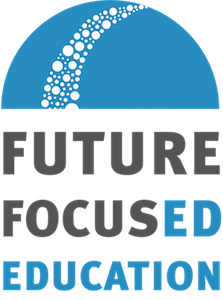
Comments
Great information was provided in assisting me with writing my Capstone document.
I am still learning how to write my Capstone paperwork. Sometimes it seems confusing for me. I will get this.